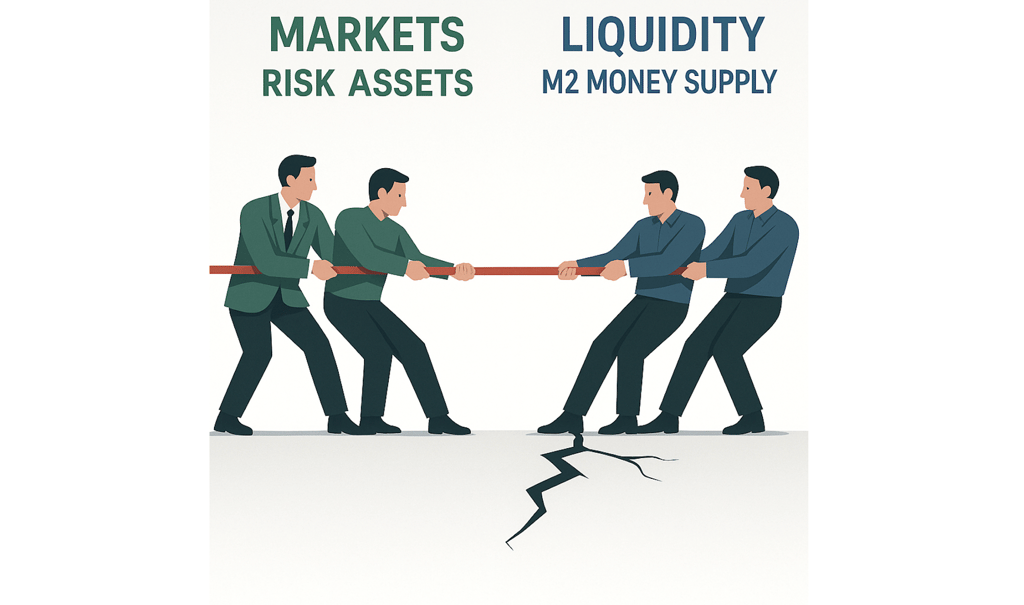Why Money Supply Matters More Than You Think
“You get recessions, you have stock market declines. If you don't understand that's going to happen, then you're not ready, and you won't do well in the markets.” – Peter Lynch
7/22/20252 min read


The money supply can be thought of as the backbone of market liquidity. And one of the clearest ways to track it is through M2, a key measure of how much money is circulating through the economy.
M2 includes:
Physical currency
Checking & savings accounts
Certificates of deposits (CDs)
Money market funds
Think of it as a gauge for consumer spending power and investment capital. When M2 rises, liquidity increases and can fuel investment in risk assets. When it falls, liquidity dries up and markets typically feel a pinch.
A Historic Shift
From 2020 to 2021, M2 surged higher due to pandemic-era stimulus and quantitative easing. But in 2022, something rare happened:
M2 contracted year-over-year for the first time since the Great Depression.
Which often leads to significant consequences:
Less liquidity chasing financial assets
Tighter credit conditions across the board
Higher odds of stagnation or market instability
Why It Affects Interest Rates & Stocks
M2 doesn’t just impact Wall Street…it steers the whole economic cycle.
Falling M2 puts pressure on economic growth
Tight liquidity weighs on earnings, credit, and valuations
Stock rallies without liquidity support tend to be fragile or speculative
What to Watch
Do we see credit spreads widening?
Are market gains broad-based, or driven by a narrow group of speculative stocks?
Will the Fed pivot too late in reaction to fading liquidity and economic softness?
Bottom Line:
Monetary policy works with long and variable lags, and we likely haven't seen the aftershocks of the M2 pullback. Don’t underestimate its contribution to economic prosperity, or lack thereof. It’s a powerful a signal.
This newsletter is for informational and educational purposes only and does not constitute investment advice or a recommendation to buy or sell any securities. All investments involve risk, including the possible loss of principal. Past performance is not indicative of future results. Iron Valley Investments is a registered investment adviser in the State of Pennsylvania. Registration does not imply a certain level of skill or training. A copy of Iron Valley Investments current written disclosure statement discussing Iron Valley Investments business operations, services, and fees is available at the SEC’s investment adviser public information website – www.adviserinfo.sec.gov or from Iron Valley Investments upon written request.
